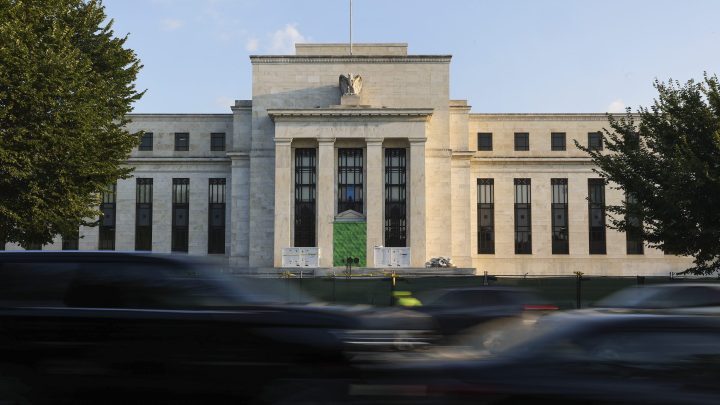
Federal Reserve losses contribute to federal deficit
Federal Reserve losses contribute to federal deficit

Out of that $2 trillion government budget deficit that’s been popping eyes recently, some portion of it is due to the Federal Reserve. The Fed is actually losing money right now after a long stretch in which it was making money.
The central bank manages interest rates, fights inflation, promotes employment and can make money doing it.
“For the last 15 years, the Fed’s been making about $100 billion a year,” said Joe Gagnon, a senior fellow at the Peterson Institute for International Economics, which is a Marketplace underwriter. The Fed hands that profit right on over to the Treasury to do whatever it wants with. So where does that money come from?
Well, you might remember a little thing called quantitative easing.
This was the Fed’s strategy to help the economy, in the Great Financial Crisis and again during the pandemic, by going out and buying tons of bonds and mortgage-backed securities. Today, the Fed still owns trillions of dollars’ worth of those bonds and securities, which pay interest. Not a lot, but …
“On average over time, it makes a fair amount of money,” said Bill English, a professor at the Yale School of Management.
But the Fed also has to spend money. Among other things, the Fed is a bank for banks, and it pays interest to those banks. When interest rates were low, it wasn’t paying much — less than 1% a year. But now?
“It’s now paying interest on reserves of 5.5% or so, so the interest expense is now greater than the interest income and the Fed has lost on the order of $100 billion since last fall,” English said.
When the Fed has a loss, it does not just suck money out of the Treasury or taxes. It files the loss away until it can pay it back once it’s making a profit again. But the U.S. Treasury doesn’t get its free money.
“So compared to last year, we are more than $100 billion down,” said Marc Goldwein with the Committee for a Responsible Federal Budget.
Now, that only accounts for around 5% of the current deficit.
“And it really is the Congress and president who should be held accountable for our level of borrowing,” Goldwein said. It’s not the Fed’s job, he said, to be a golden goose for the Treasury.
There’s a lot happening in the world. Through it all, Marketplace is here for you.
You rely on Marketplace to break down the world’s events and tell you how it affects you in a fact-based, approachable way. We rely on your financial support to keep making that possible.
Your donation today powers the independent journalism that you rely on. For just $5/month, you can help sustain Marketplace so we can keep reporting on the things that matter to you.


















